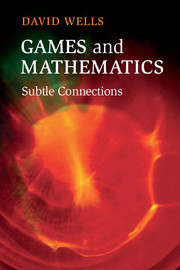Part I - Mathematical Recreations and Abstract Games
Published online by Cambridge University Press: 05 November 2012
Summary
Introduction
Abstract games, traditional puzzles and mathematics are closely related. They are often extremely old, they are easily appreciated across different cultures, unlike language and literature, and they are hardly affected by either history or geography. Thus the ancient Egyptian game of Mehen which was played on a spiral board and called after the serpent god of that name, disappeared from Egypt round about 2900–2800 BCE according to the archaeological record but reappeared in the Sudan in the 1920s. Another game which is illustrated in Egyptian tomb paintings is today called in Italian, morra, ‘the flashing of the fingers’ which has persisted over three thousand years without change or development. Each player shows a number of fingers while shouting his guess for the total fingers shown. It needs no equipment and it can be played anywhere but it does require, like many games, a modest ability to count [Tylor 1879/1971: 65].
As, of course, do dice games. Dice have been unearthed at the city of Shahr-i Sokhta, an archaeological site on the banks of the Helmand river in southeastern Iran dating back to 3000 BCE and they were popular among the Greeks and Romans as well as appearing in the Bible.
The earliest puzzles or board games and those found in ‘primitive’ societies tend to be fewer and simpler than more recent creations yet we can understand and appreciate them despite the vast differences in every other aspect of culture.
- Type
- Chapter
- Information
- Games and MathematicsSubtle Connections, pp. 1 - 8Publisher: Cambridge University PressPrint publication year: 2012



